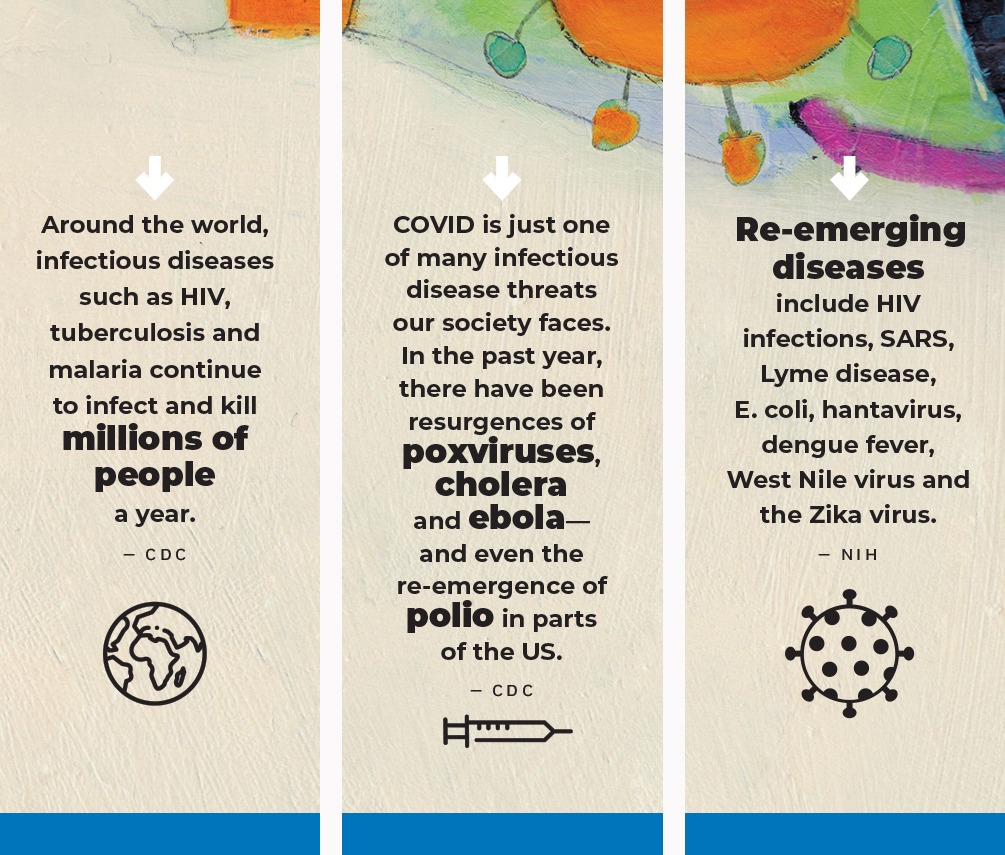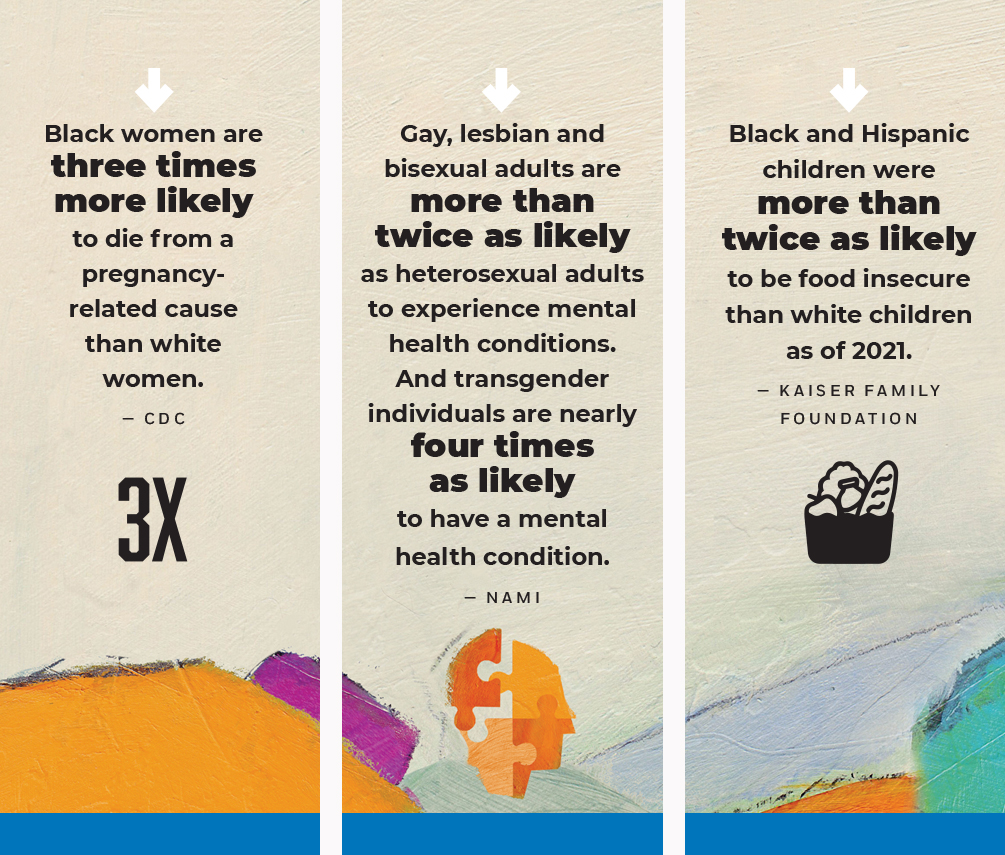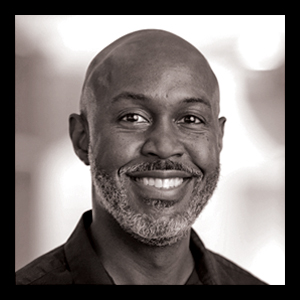Public Health IDEAS adds two new interdisciplinary research initiatives

Combating Infectious Diseases and Building Health Equity
Michigan Public Health recently launched two new initiatives under its Public Health IDEAS umbrella that will focus on preventing the spread of infectious diseases and building health equity.
The school launched Public Health IDEAS—which represents Interdisciplinary Discovery, Engagement + Actions for Society—in 2021, with a $1 million investment to increase collaboration and advance research and engagement in key areas to achieve meaningful, lasting impact. Public Health IDEAS started in October of that year with two inaugural initiatives: Public Health IDEAS for Preventing Firearm Injuries and Public Health IDEAS for Building Healthy and Equitable Cities.
The new initiatives are Public Health IDEAS for Combating Infectious Diseases and Public Health IDEAS for Building Health Equity.

“The last couple years have made it abundantly clear that we need to do more to increase our collective ability to manage infectious diseases and promote health equity across populations,” said F. DuBois Bowman, dean of Michigan Public Health. “Given our long history of impactful research and action on these topics, coupled with the interdisciplinary nature of our school and our university, Michigan Public Health is uniquely positioned to tackle these complex and urgent problems.
“Our work must be bold. We must pursue it with a sense of urgency, and it must pave a path for long-term transformation. Together, we can build a better future.”
Public Health IDEAS for Combating Infectious Diseases
As the COVID-19 pandemic made clear, cutting-edge science on its own cannot eradicate a rapidly spreading infectious disease. A robust, interdisciplinary approach is needed to deliver vaccines and other interventions to the general public and implement them in a way that is both equitable and effective.
Public Health IDEAS for Combating Infectious Diseases is led by Emily Martin, associate professor of Epidemiology, and Bhramar Mukherjee, the John D. Kalbfleisch Collegiate Professor of Biostatistics and the chair of the Department of Biostatistics.
Through this initiative, Michigan Public Health combines its expertise across many areas to improve on existing strategies and develop innovative new strategies for combating both known and emerging infectious diseases through scientific advances, public engagement and action.

“One thing I learned from the COVID-19 pandemic is that infectious diseases aren’t just about a pathogen and how it affects the host and what symptoms it causes,” Martin said. “Infectious diseases impact communities in ways that reverberate across the economy, across our ability to educate our children and across policy in ways we haven’t fully thought through as a society. We need to bring new elements of science in to really understand this puzzle of how to make effective interventions in a way that can be rolled out in a way that is equitable and actually gets used by the people who need it the most.
“Michigan Public Health is in an excellent position to take on this challenge. Not only do we have the best researchers who study infectious diseases the traditional ways, we have an incredible wealth of knowledge and expertise. I am excited about this opportunity to broaden the way we think about infectious diseases into this more holistic framework.”
FACULTY LEADS
 Emily Martin is an associate professor of Epidemiology. She focuses on infectious
diseases and respiratory viruses—including influenza, SARS-CoV-2 and RSV—and strategies
to prevent and treat infection. Her research includes studies of vaccine effectiveness
and virus transmission in community, hospital and ambulatory settings. Martin is a
core investigator for the CDC's US Influenza Vaccine Effectiveness Network and IVY
network for hospital vaccine effectiveness.
Emily Martin is an associate professor of Epidemiology. She focuses on infectious
diseases and respiratory viruses—including influenza, SARS-CoV-2 and RSV—and strategies
to prevent and treat infection. Her research includes studies of vaccine effectiveness
and virus transmission in community, hospital and ambulatory settings. Martin is a
core investigator for the CDC's US Influenza Vaccine Effectiveness Network and IVY
network for hospital vaccine effectiveness.
 Bhramar Mukherjee is the John D. Kalbfleisch Collegiate Professor of Biostatistics
and the chair of the Department of Biostatistics. Mukherjee’s research focuses on
the development and application of statistical methods in epidemiology, environmental
health, cancer research and disease risk assessment. She is known for her pioneering
contributions in developing analytical frameworks for integrating data from genes,
environment and past disease phenotypes toward improved understanding of disease etiology
and future risk—often using observational data sources such as electronic health records.
Since the beginning of the COVID-19 pandemic, Mukherjee and her team have been modeling
the SARS-CoV-2 virus trajectory in India and their work has been covered widely.
Bhramar Mukherjee is the John D. Kalbfleisch Collegiate Professor of Biostatistics
and the chair of the Department of Biostatistics. Mukherjee’s research focuses on
the development and application of statistical methods in epidemiology, environmental
health, cancer research and disease risk assessment. She is known for her pioneering
contributions in developing analytical frameworks for integrating data from genes,
environment and past disease phenotypes toward improved understanding of disease etiology
and future risk—often using observational data sources such as electronic health records.
Since the beginning of the COVID-19 pandemic, Mukherjee and her team have been modeling
the SARS-CoV-2 virus trajectory in India and their work has been covered widely.
Public Health IDEAS for Building Health Equity
Look at any disease statistics and you’ll quickly notice that not everyone enjoys the same level of health. Whether due to race, religion, sexual orientation, gender identity, or a multitude of other factors, people in some groups across the US and around the globe experience stigma, bias and discrimination that often lead to poorer health outcomes.
Public Health IDEAS for Building Health Equity is led by Enrique Neblett, professor of Health Behavior and Health Education, and Justin Colacino, associate professor of Environmental Health Sciences and Nutritional Sciences. The effort builds on existing collaborations to identify proven and sustainable ways to dismantle racism and other forms of inequality embedded in society and promote health equity across populations.

“For this initiative, which is an extension of my research passion, we’re focused on the public health crises that are health inequities,” Colacino said. “The effects of systemic racism and how it has driven the health inequities that we see today is a prime and tragic example. This is very visible in environmental health sciences, where we know that historic policies like redlining have set up minority communities to bear a disproportionate burden of the effects of pollution. These racist policies have been enacted for decades and have caused serious health issues. We have a lot of work to do to fix these policies and remedy their effects.
“There are just so many health inequities that are facing Michigan, the United States and the world; it’s a really important area for us to focus on as a school.”
With this initiative, Michigan Public Health is bringing together experts across a range of disciplines.
“Given the interdisciplinary nature of both the University of Michigan and the School of Public Health and a long history of scholarship on discrimination and health equity, the school is uniquely positioned to address this complex and longstanding problem with the urgency it deserves,” Colacino said.
FACULTY LEADS
 Justin Colacino is an associate professor of Environmental Health Sciences and Nutritional
Sciences. His research focuses on understanding environmental and dietary factors
in the development of chronic diseases like cancer. Additionally, he studies how certain
populations are unequally impacted by chemical exposures and how those exposures might
impact disease disparities. His research group combines wet lab bench work and bioinformatic
and statistical analysis of large-scale genomic and epidemiologic data sets to translate
findings from in vitro models to the population level.
Justin Colacino is an associate professor of Environmental Health Sciences and Nutritional
Sciences. His research focuses on understanding environmental and dietary factors
in the development of chronic diseases like cancer. Additionally, he studies how certain
populations are unequally impacted by chemical exposures and how those exposures might
impact disease disparities. His research group combines wet lab bench work and bioinformatic
and statistical analysis of large-scale genomic and epidemiologic data sets to translate
findings from in vitro models to the population level.
 Enrique Neblett is a professor of Health Behavior and Health Education. He is one
of the leading US scholars in racism and health, with a particular focus on understanding
how racism-related stress influences the mental and physical health of young Black
people. He and his collaborators have examined the mechanisms by which racial discrimination,
internalized racism and impostor feelings can affect health. In his most recent line
of research, he conducts community-based participatory research with an eye toward
developing and implementing interventions, programs and policies to address the health
consequences of structural racism and promote health equity.
Enrique Neblett is a professor of Health Behavior and Health Education. He is one
of the leading US scholars in racism and health, with a particular focus on understanding
how racism-related stress influences the mental and physical health of young Black
people. He and his collaborators have examined the mechanisms by which racial discrimination,
internalized racism and impostor feelings can affect health. In his most recent line
of research, he conducts community-based participatory research with an eye toward
developing and implementing interventions, programs and policies to address the health
consequences of structural racism and promote health equity.
